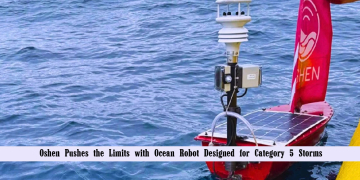Today, the world is witnessing revolutionary changes in almost every industry with the advancement of technology. The transportation industry is no exception regarding that. Therefore, the tech companies are focusing on developing new technology in transportation.
The continuous effort and commitment to make new transport technologies are now ready to become a reality. The tech companies will soon deliver the most unexpected transportation ideas for the future.
This article intends to familiarise you with seven upcoming technologies that belong to the future. But before that, let’s find out why the world needs transportation technologies in the first place?
Why Do We Need Transportation Technology?
Better transportation arises because currently, no vehicle offers the required efficiency, safety, and convenience altogether.
Considering this fact, the tech companies are now focusing on offering more reliable, efficient, and safe vehicles. Also, the reason that there is always some scope for improvement has made automobile companies tie up with tech giants for a much-needed change.
The new transport technologies intend to remove transportation issues like affordability, traffic, accidental deaths, greenhouse emissions, and safety.
Let’s now find out the seven most promising future transportation technologies.
1). Electric Vehicles
Electric vehicles have had a significant impact on travelling, whether in the city or across the country. Tesla and Nissan popularised the electric automobile, which relies exclusively on battery power to transport us.
Rather than refuelling at a gas station, electric vehicles require a battery charge to get back on the road. Today, the most advanced electric vehicles can drive 150 to 350 miles on a single charge. These cars are excellent examples of transportation technology because they significantly alter how vehicles operate and drive.
2). Automated Cars
Autonomous vehicles will overtake the existing automobile industry, causing the most dramatic and astounding transformation since it was initially introduced in the early twentieth century.
People are progressively becoming accustomed to self-driving cars. Because it can overcome human error, an autonomous car is believed to be safer than a human-powered car.Recent advancements in cloud computing and emerging technologies such as AI, IoT, and LiDAR have transformed autonomous cars from a vision to current reality.
As a result, many companies are announcing plans to launch autonomous vehicles, and test drives of these vehicles are already underway in cities worldwide.Waymo and Tesla, for example, are at the vanguard of the driverless revolution.
3). Delivery Drones
A delivery drone is a crewless aerial vehicle (UAV) that transports packages, medical supplies, food, or other items. Delivery drones are normally self-sufficient new transport technologies coming up soon. Companies such as Amazon, UPS, and DHL focus on creating drones for last-mile delivery. However, manufacturing such drones is a technological hurdle. Nevertheless, this industry is attempting to make delivery drones a reality.
4). Hyperloop
One of the most extensively used transportation technologies is the hyperloop. It is a tube that transports humans from one location to another by utilising their physical qualities.
Passengers would be able to travel at a top speed of 600 miles per hour, more than twice the top speed of the fastest train.
There are numerous hurdles associated with establishing the Hyperloop, including large space and huge investment. Obtaining environmental and other approvals for the hyperloop is quite hard, and many people believe it is excessive and extravagant.
5). Lightweight Vehicles
Automakers strive hard to produce both efficient and high-performing vehicles. According to studies, reducing vehicle weight by 10% improves fuel efficiency by 6% or more. One of the most effective ways to make the material lighter is to substitute iron and steel with alternative metals such as carbon fibre structures and magnesium-aluminium alloys. Manufacturing companies are working hard to make it a reality.
6). Bike Share
Users who do not want to pedal through the major transportation hubs can utilise a bicycle instead. Furthermore, a user can borrow a bicycle from the start of his journey and park it at his destination using the bicycle sharing system.
Businesses can now use electric bicycles for various deliveries, and in the future, they will be able to perform other services at a reasonable cost. In addition, according to research, bike-sharing has a positive influence on lowering transportation and pollution.
7). Futuristic Subways
This is another new technology in transportation. The technology allows users to avoid taking public transit and commute fast. The drawback is the danger of congestion and a stop at the tunnel’s entrance as more people use these capsules as a super-fast mode of transportation.
Elon Musk, the founder of Tesla intends to build a localised, futuristic metro system.
Tesla has built the first stretch of the city’s tunnel, transporting people at speeds of up to 250 km/h in their cars or pedestrian pods. The building of new subway systems in the United States is moving more slowly. However, the futuristic loop is already being tested in Los Angeles
The technology is all set to change the course of transportation worldwide with its new transportation ideas for the future. The world is in constant need of change that can be relied upon for a long time. This article has given a blueprint of how the transportation industry will change in the upcoming days. I hope it helped you.






